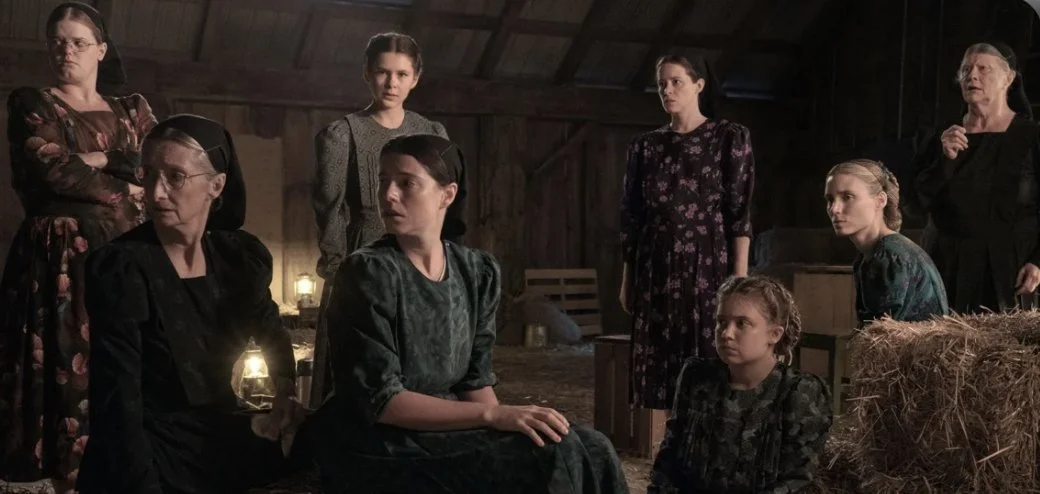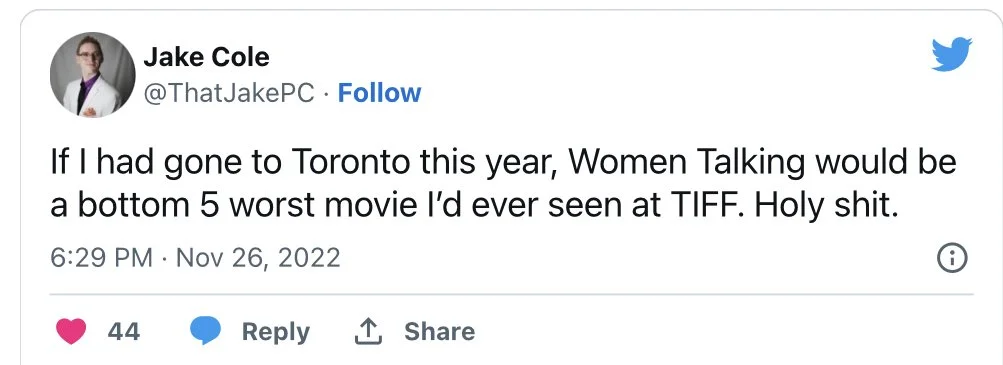Sarah Polley’s “Women Talking” was released on Friday. That means I’m reposting my review from this past September’s TIFF. I tried to rewatch this one via screener, but it still felt unwatchable. A total slog to get through.
And yet, “Women Talking” is said to be a serious Oscar contender, especially in Picture, Director, Supporting Actress, Supporting Actor and Adapted Screenplay categories. Will the academy bite?
There are very few out there who are skeptical about its chances, one of them is Scott Feinberg who threw some cold water at the “Women Talking” fanatics. He said it would be a hard sell for Academy voters, 66% of which are men and claimed the praise it was getting at Toronto/Telluride may have been due to “festival fever.”
Here’s my review posted September 8th, 2022:
There were women sobbing all around me during the press & industry screening of Sarah Polley’s “Women Talking,” so, I assume, the film will work with a large contingent of people, but it fell flat for me.
This is essentially #MeToo porn. A miserablist tale with no nuance or sophistication. It all amounts to one large stagey screed on female empowerment. I can dig this kind of movie, if done right. Sadly, “Women Talking” is not done right.
It’s a chamber piece, with the occasional flashback and quick emotive cut, concerning a little less than a dozen or so Mennonite women congregating inside a barn to discuss their inevitable exit from the abusive men surrounding the premises.
These women have been raped, abused, beaten and drugged. They vote on what the next step is: to flee or not to flee. They believe the only sensible reason not to leave their dire situation is a religious one, God is watching, the pearly gates wouldn’t accept them and it would be immoral.
That’s the gist of Polley’s narrative, a static dive into conversational therapy that barely has any tension and lacks specific cinematic features to keep us invested. There’s frustration in watching them converse and debate. It ends up feeling forced and speechified. And yet, it’s a very well-acted dialogue piece. The performances are fairly stellar too, with best in show honors going to Jessie Buckley, as the hard-headed Mariche.
The problem is its cinematic inertness, the hyper talkativity of the piece that drains it of any substantive cinematic depth. It’s also visually drab. DP Luc Montpellier shoots the whole thing with grey-ish coloured lenses, almost to the point of making you wonder whether Polley’s original intention was to shoot this one in black and white. The resulting photography are sober flares of desaturated colour. [C]






